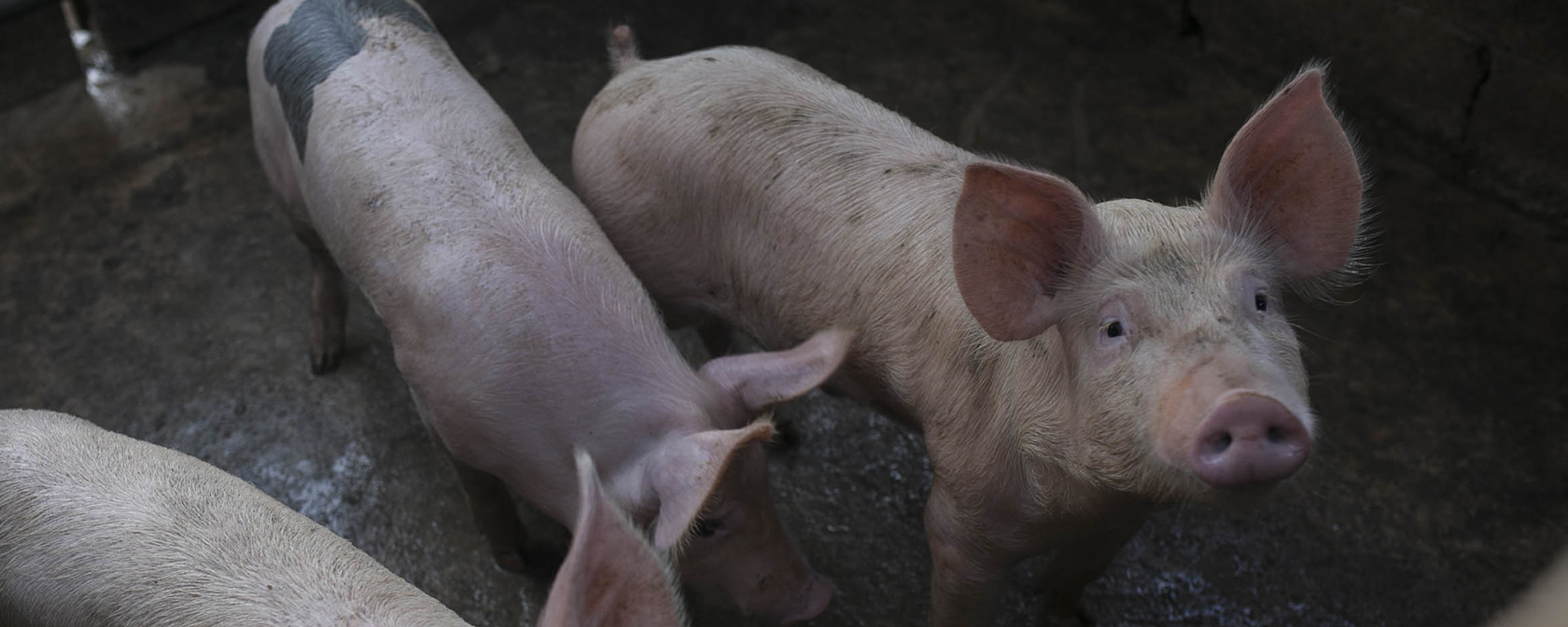By Sara Amundson and Kitty Block
Slaughterhouses have emerged as hotspots for the coronavirus pandemic in the United States, with more than 37,000 cases tied to meatpacking plants and more than 160 workers dead. But instead of curtailing practices that put workers at greater risk, like fast slaughter speeds that require them to work closer together at a breakneck pace, the Trump administration has pandered to the industry by quietly issuing a record number of waivers that allow slaughterhouses to operate their lines at a faster rate than they already did. This not only exacerbates the disease risk for workers, but it also creates an animal welfare catastrophe.
Today, Sen. Cory Booker, D-N.J., introduced a bill in Congress, the Safe Line Speeds During COVID-19 Act, that would require the U.S. Department of Agriculture’s Food Safety and Inspection Service (FSIS) to suspend all waivers for increased line speeds it has issued to chicken and cattle slaughterhouses during the pandemic, and stop issuing any new waivers. It would also suspend, during the pandemic, implementation of a recent rule that allows certain pig slaughterhouses to operate without any restrictions on line speeds. The bill, if it becomes law, would address many pressing animal welfare, worker safety and public health concerns caused by increased slaughterhouse line speeds.
Earlier this month, Rep. Marcia Fudge, D-Ohio, introduced a similar bill in the House, H.R. 7521.
Just between March 26th and April 20th this year, FSIS approved waivers for 17 slaughterhouses to operate at faster speeds than they already did. This includes 16 chicken plants, which were allowed to speed up slaughter lines from an already lightning-fast 140 birds killed per minute to 175 per minute. FSIS also granted a waiver to a cattle plant, allowing the company to increase slaughter speeds and shift inspection duties from its own inspectors to untrained plant employees.
The waivers, oddly enough, were handed out even as federal agencies, including the USDA, acknowledged slower speeds could be necessary in the midst of the pandemic. A report from the Centers for Disease Control and Prevention recommended that facilities reduce their rates of animal processing to allow for critical social distancing measures. And the Occupational Safety and Health Administration called upon slaughterhouses to modify production lines to minimize the spread of the virus and allow time for workers to wash their hands with soap and sanitize equipment.
Such breakneck line speeds benefit no one other than the corporations, which, according to media accounts, continue to look out for their long-term investments during the global health crisis while misleading the American public. The New York Times reported that even as meat companies warned Americans that the pandemic was pushing the United States “perilously close to the edge in terms of our meat supply,” they exported record amounts of meat to China.
The animals pay a heavy price for this greed, enduring tremendous suffering in their final moments. At chicken slaughterhouses, for instance, workers struggling to keep up with the rapidly moving slaughter lines grab the chickens and slam them into shackles, injuring the animals’ fragile legs. Some birds miss the throat-cutting blade and enter the scalder—a tank of extremely hot water—alive and fully conscious, resulting in a terrible death. Dialing up line speeds only further increases the risk for more animal suffering.
The conditions at crowded slaughterhouses also compromise the safety of the food placed on American dinner tables because cruel handling during slaughter increases the risk of food contamination, for example from birds defecating in the scalder tank.
We applaud Sen. Booker and Rep. Fudge for their leadership in introducing the Safe Line Speeds During COVID-19 Act and their efforts to protect animals, consumers and workers from the dangers posed by higher-speed slaughter systems. We are also grateful to the original cosponsors of the bill in the House (Reps. Rosa DeLauro, D-Conn., and Bennie Thompson, D-Miss.) and in the Senate (Sens. Richard Blumenthal, D-Conn., Dianne Feinstein, D-Calif., Kamala Harris, D-Calif., Jeff Merkley, D-Ore., Bernie Sanders, I-Vt., and Elizabeth Warren, D-Mass.).
The HSUS and HSLF have been at the frontlines of the fight to end high speed slaughter: we are challenging these systems in court, we are pressing Congressional leadership to act to end it with urgency through the appropriations process, and we will support this bill wholeheartedly until it becomes law. Big Ag has a century-long history of ignoring worker safety and animal suffering to safeguard its profits, and we will not stand by silently while our government facilitates such bald-faced greed, especially during a pandemic.
Kitty Block is President and CEO of the Humane Society of the United States.




